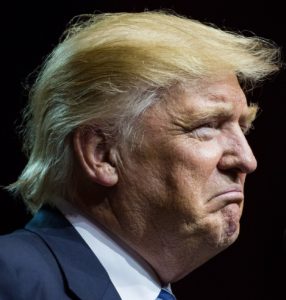The Supreme Court turned aside a GOP drive to enforce pre-Covid mail voting restrictions in a ruling that upheld Rhode Island’s relaxation of its witness requirement for mail ballots. The ruling was 6-3. Read story here.
Last week, a federal judge ordered New York to count primary ballots lacking postmarks or delayed in the mails. Read story here.
But while courts have been allowing states to relax voting requirements because of Covid-19, they’ve been reluctant to force states to do so, turning back citizen lawsuits in Texas and Wisconsin, among other places.
There are many more lawsuits in the pipelines, but these rulings are a signal that courts likely will give state election officials broad discretion to decide how to manage elections in this pandemic environment. That’s a setback for Republican voting suppression efforts, which especially target groups likely to favor Democrats, such as the poor, seniors, students, and minorities, including black soldiers serving in combat zones.
These rulings are something of a reversal, because voting advocates haven’t been doing well in the courts. For example, in state after state, courts have upheld ID laws designed to make voting more difficult, such as the one in Texas that says a gun permit is acceptable ID for voting but a University of Texas student ID card is not.
Republicans assert without evidence that voting fraud is rampant. In reality, voting at polls by imposters is a non-existent chimera, and study after study has shown that voting fraud in general is extremely rare. When it does happen, Republicans often are the guilty parties, as when an ex-felon political operative forged hundreds of ballot signatures on behalf of a GOP congressional candidate (the election was tossed), and a Wisconsin insurance executive cast 5 ballots in a recall election among other illegal votes (he went to jail).
The Covid-19 pandemic has already created major voting problems in this year’s primaries, with long lines and hours-long waits; ahead of the November election, election officials are grappling with shortages of pollworkers, and now Trump is sabotaging the mail system to interfere with mail voting. There are real fears of election chaos.
But it doesn’t look like courts are willing to be anyone’s patsies in the voting battles to come. Earlier this year, the Supreme Court allowed states to punish presidential electors who stray from their pledged candidates; for example, Washington imposed $1,000 fines on 3 electors pledged to Hillary Clinton who cast their electoral votes for other persons (not Trump) in 2016.
 Fines wouldn’t stop turncoat electors, especially ones being paid by an opposing party or a foreign power, should that ever happen. But a fine is trivial compared to what vigilante mobs likely would do to faithless electors who changed the outcome of a presidential election like this one.
Fines wouldn’t stop turncoat electors, especially ones being paid by an opposing party or a foreign power, should that ever happen. But a fine is trivial compared to what vigilante mobs likely would do to faithless electors who changed the outcome of a presidential election like this one.
Photo: Trump incessantly throws out baseless accusations of voting fraud while assaulting the foundations of our democracy like no one else has.
The Supreme Court probably hopes these election issues would be resolved by the states courts. Every presidential election is composed of 50 separate elections. Some of those elections maybe messy this year. The covid does put a strange whammy on all the usual equipment. Elections are stolen in county clerk offices, but by far most county clerks are honest public servants. The only other place this election could get really messy is the House. The House has from time to time not accepted a states results at least initially. If the House does not accept the results of a state or a few states no candidate wins a majority in the Electoral College and well then the House gets to vote ofr President of course then each state gets a single vote. Yes the Speaker could essentially become President, but the undemocratic rules because we are a Republic would probably prevent that, as Republicans control a majority of states in the House. Oh the gnashing of teeth will be great. Hopefully no one will look back and wish the Supreme Court had made a real decision on some of these cases.
“The Supreme Court probably hopes these election issues would be resolved by the states courts.” No, shirking issues is not what the Supreme Court does or how it chooses which cases to hear. “The covid does put a strange whammy on all the usual equipment.” No, it puts a whammy on election workers and voters, but the equipment is unaffected. “Elections are stolen in county clerk offices.” I believe this statement to be 100% false. I don’t know of a single example. “The House has from time to time not accepted a states results at least initially.” In 1872 and 1876. If 2 House members object to an electoral vote, a Senator must concur, or the objection dies. If electoral votes are rejected, what follows is complicated; an informative brief discussion of the topic can be found in Wikipedia’s article on the “Electoral Vote Act.”